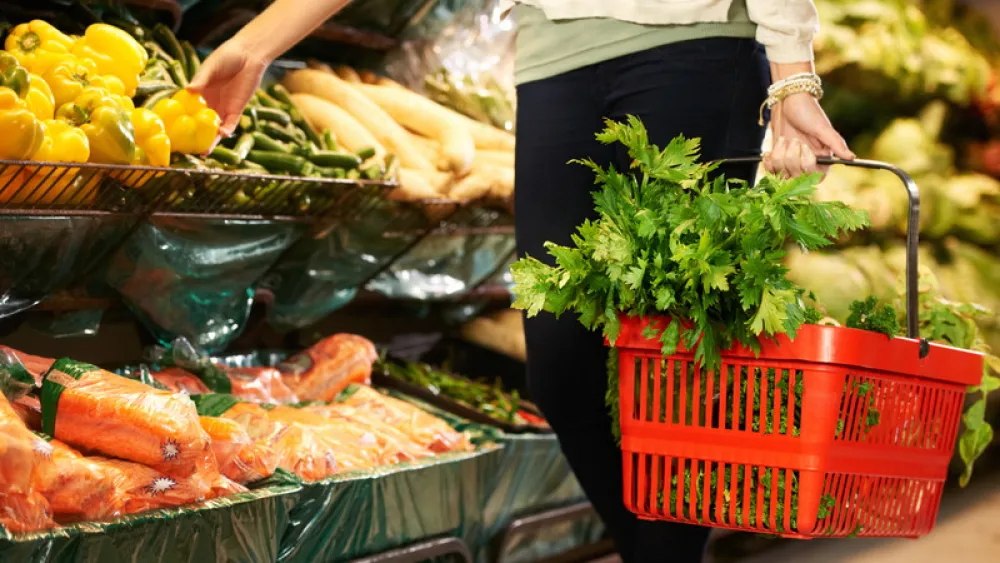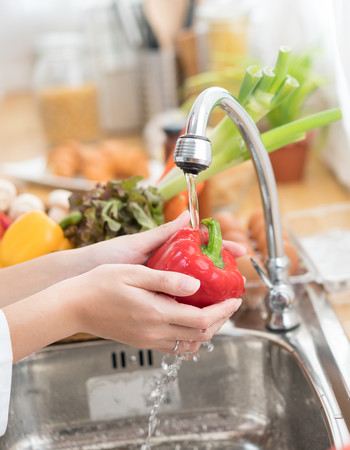Today's Medicine
What Is Cyclospora, and How Can You Avoid it?
Published: Aug. 2, 2019

If you follow the news, you’ve probably noticed that cyclospora pops into the headlines every so often.
The parasite can cause an intestinal infection that’s no fun for those who come down with it.
So how does cyclospora spread, and how can you protect yourself from its nasty symptoms?
How does it spread?
Cyclospora is often found in tropical and subtropical countries, and it travels via feces. During the summer months, outbreaks and illnesses in the United States often occur when contaminated fresh produce enters the market from these areas. Contaminated water can also spread Cyclospora.
When ingested, Cyclospora can cause an infection called cyclosporiasis. An infected person can then pass on the parasite through a bowel movement. Ineffective hygiene practices and unsafe food handling are often being responsible for the parasite’s spread. That explains why you’ll see recalls for foods like berries, basil or lettuce.
Cyclospora symptoms
Symptoms usually begin a week or two after ingesting the parasite. They can include:
- Frequent watery diarrhea
- Loss of appetite
- Weight loss
- Cramping, bloating and/or increased gas
- Nausea (vomiting is less common)
- Fatigue
- Low-grade fever
Without treatment, symptoms can continue for a month or more. A cyclosporiasis infection usually isn’t life-threatening, but it can make for a miserable experience.
Treatment
Otherwise healthy people can usually recover from the infection without treatment, but seeing a health care provider can help. They can help determine what’s causing the symptoms and if an antibiotic is appropriate. People who are in poor health or have weaker immune symptoms may suffer more and longer from the infection. When in doubt, seek medical attention.
 Prevention
Prevention
Avoiding Cyclospora is the easiest way to steer clear of an infection. For travelers, that’s often top of mind. But it’s just not something most people in the U.S. think of day in and day out. To protect yourself, remember these tips when handling food:
Wash everything. Your hands, dishes, utensils, countertops – you name it. Use warm water and soap. Be especially sure to clean between the preparation of raw meat, seafood and poultry, and the preparation of fruits and vegetables you aren’t cooking.
Proper preparation. The washing extends to fruits and vegetables. Unless they’ve been prewashed, be sure to give them a good cleaning before eating, cutting or cooking. Scrub those firm fruits and vegetables, and cut off any damaged or bruised areas.
Smart storage. Be sure to refrigerate any cut, peeled or cooked fruits and vegetables within two hours. Don’t forget to store them away from raw meat, poultry and seafood.
If you have questions about Cyclospora or suspect you may be infected, contact your primary care provider or the Methodist Physicians Clinic Infectious Disease Clinic at (402) 354-1530.
More Resources
- Learn more about Cyclospora from the CDC
- Learn more about the Methodist Infectious Diseases Clinic
- Want to prevent mosquito bites? Try these tips


